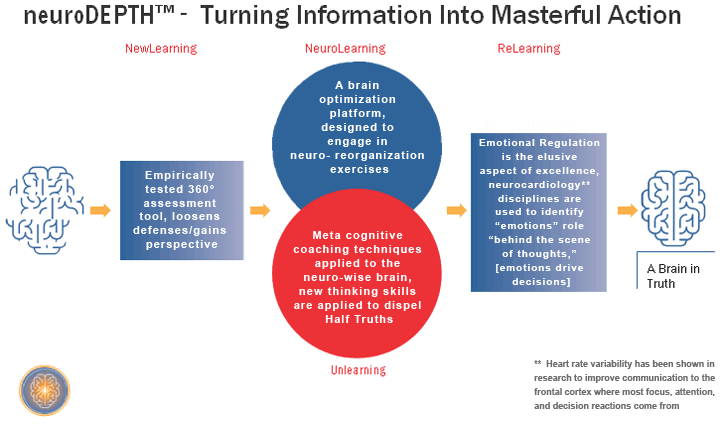Brain retraining in the 21st century
Brain retraining has long been researched and once upon a time, lobotomies were performed to help alleviate certain mental illnesses and ailments. A lobotomy was a procedure in which a portion of the brain was removed, believing that it was causing these conditions. Of course, the side effect of the lobotomy was often severe brain damage. Today, science has learned a great deal about the brain and how it works and how it works through challenges.
The brain is perhaps the most complex thing that has ever existed. It consists of ten billions neurons that each carry tens of thousands of electrical signals every day. When one neuron is damaged or killed by some event, whether it’s the influence of drugs or alcohol, stress, or an injury, then the brain adapts and finds a different pathway for the signal to be carried to where it needs to be.
Through brain retraining, you conduct new pathways
Brain retraining isn’t surgery. It’s a process that requires time and patience on the part of both the patient and the doctor performing this retraining. Nothing changes overnight, but there are a number of exercises and activities that one can do to help in the retraining of his or her brain.
By brain retraining, you begin to alter the chemical makeup and electrical conduit activity within the brain. You begin to alter the processes that thoughts go through and this is one of the most important steps in overcoming any number of challenges. Your brain may feel that it’s not a part of you, that you don’t really control much of what transpires within your brain other that your conscious thoughts, but in reality, your brain is still reliant on you for almost all of its functions and direction.
The cerebellum, of course, is on autopilot and that controls involuntary behaviors in the body, such as pumping your heart, breathing, and blinking your eyes. The rest of your brain is constantly gathering input from you and the environment in which you surround yourself.
Think about a time in your life when you felt that things were going wrong, that you couldn’t do anything right, that all you wanted to do was curl up in a ball on the corner of your bed and let the world disappear. If you didn’t force yourself to alter your thinking, then you might still be in that corner of the bed, still feeling sorry for yourself, still wishing things were different. What happened to get you out of that place? Perhaps friends or family helped you to realize that you have a lot to live for, that there was so much for you to experience, that this trouble was going to pass, or any number of things.
What was going on inside you was a brain retraining. When you began to alter your thoughts, your brain was altering the chemical balance, reconfiguring certain electrical pathways and that helped to bring you out of your depression. This story is as old as civilization but most people simply don’t realize that it’s the process of brain retraining at work.
Brain retraining as a science
Some might call brain retraining more of science fiction than science, but when you think about all of the thoughts and studies that you have undergone in your life, you are surrounded by brain retraining. In school, when you are facing a new and unfamiliar subject, you are facing brain retraining.
As mentioned, it doesn’t happen overnight, but through diligence, patience, and dedication, you can alter your brain to build the kind of life that you long to enjoy and deserve. Anyone is capable of retraining their brain and while most of us seem to inherently do this with negative results –worried about finances, stressed about work, feeling inadequate- is can be done through positive thoughts and interactions as well.
Dr. Fleming is an expert on brain retraining and has helped hundreds of clients overcome the challenges of their life and he can do the same for you.
Dr. Fleming’s solution:
Dr. Fleming has long been working on studying the most effective methods for helping people for most of his professional career and, through his efforts, has unlocked a number of incredible keys to overcoming any number of challenges. His customized one-on-one approach has helped thousands of clients from around the world improve their lives, overcome addictions, and become better people.
Dr. Fleming’s vast experience includes:



